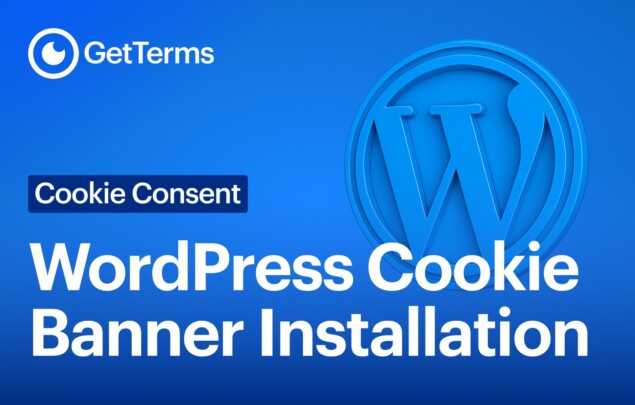How to Add a Cookie Banner to a WordPress Website
Read our guide on how to add a cookie banner to a WordPress website

Create a GDPR-ready Privacy Policy, Terms & Cookie Banner in under 5 minutes.

Cookie consent pop-ups are everywhere these days. But why do they seem to be taking over the internet, and when is cookie consent actually required for your website?
A cookie is a small file that is automatically generated and saved to your device each time you visit a website. It helps the website “remember” you and your preferences in order to facilitate certain features and offer personalized service. Even though the information captured by cookies are essential to the way we use the internet today, some types of cookies, such as tracking cookies, can also pose a risk to people’s online privacy — which is why the European Union (EU) created the 2002 ePrivacy Directive (ePD).
The directive, also known as “the Cookie Law”, ordered that website owners must explain to users what they use cookies for in addition to obtaining consent from before using them.
The rules around cookie usage have expanded since then, with laws like the General Data Protection Regulation (GDPR) now imposing heavy fines for non-compliance. If your business is based in or receives online traffic from the EU, you must comply with these rules and add a cookie consent message to your website.
Besides regulatory compliance, cookie banners are designed to help users make informed decisions about the websites (and the companies) they deal with online. Notifying users about your cookie policy can help built trust in your business, as you give them more control over their privacy preferences while browsing your site.
Nearly 50% of websites use cookies in 2020, and the number of cookie consent notices will only increase as more organisations fall in line with the GDPR.
To avoid annoying or confusing your site visitors, here’s how you can do a better job of disclosing your use of cookies:
Keep your text short & sweet: People come to your website for its content and services — not paragraphs of legal jargon. So make sure your cookie notices get straight to the point.
Use plain-speaking language: It’s one thing to write a short statement, it’s another to make it easy for the average user to understand. In the interest of truly gaining informed consent from your users, stick with clear, everyday language.
Make your full cookie policy easy to access: Any cookie notices (including banners, alerts and popups) should include a prominently featured link to your full cookie policy.
Create a comprehensive cookie policy in minutes with our Cookie Policy Generator.